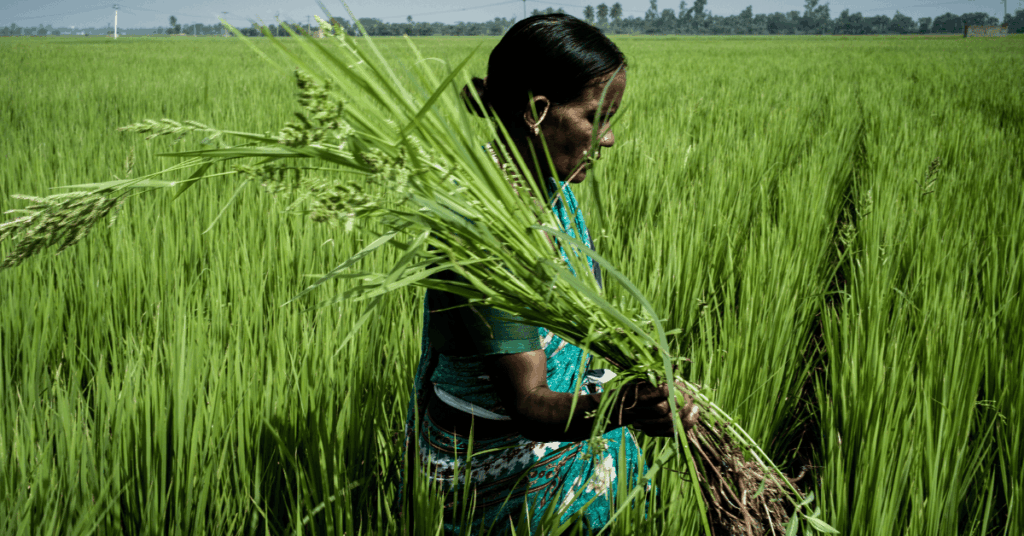
CABI has launched a landmark collaboration with the Central Rice Research Institute (CRRI) to assess the socio-economic impact of crop losses in rice ecosystems in Odisha, India with a special focus on how these losses affect men and women differently. This initiative is part of CABI’s Global Burden of Crop Loss programme, which aims to generate robust evidence to inform better decision-making and promote more resilient agricultural systems.
The collaboration, launched on 15 September 2025 in Cuttack, seeks to assess crop losses in Odisha’s rice ecosystems, with a particular focus on how these losses impact men and women farmers differently. This initiative brings a wide range of stakeholders ranging from policymakers, researchers, academia, NGOs, private sector representatives and other development partners together to understand the magnitude and factors of crop loss in rice ecosystems in Odisha.
The activities will also involve mapping relevant data sources, facilitating access to critical datasets and engaging stakeholders in co-developing practical solutions. By combining research, data-driven modelling and participatory approaches, this work supports ICAR (Indian Council of Agricultural Research)-CRRI’s goal of developing farmer-centric strategies that build resilience in rice-based farming systems while contributing to national objectives on food and nutritional security. The project will create consistent methods and practical tools to measure losses, locate problem areas and guide timely actions.
Building on shared strengths
This collaboration with CRRI builds upon the longstanding partnership between ICAR and CABI, established under an MoU signed in 1988 and broadened through successive and ongoing joint work plans. ICAR-CRRI’s mandate of sustainable rice research aligns closely with CABI’s mission and experience in plant health, socio-economic research and tools that help turn data into practical guidance. CRRI brings deep-rooted expertise in rice ecosystems across the country, including Odisha.
This collaboration would seek to leverage expertise of both organizations to understand and map crop loss patterns across different rice-growing zones in Odisha and capture the human stories behind the losses, focusing on resilience, adaptation and impact. Further, a comprehensive Odisha Rice Case Study would be co-created with farmers, scientists, administrators and field practitioners.
Understanding the Global Burden of Crop Loss
Every year, up to 40% of crops are lost before harvest owing to both biotic and abiotic factors. These losses not only threaten food security but also farmer livelihoods.
Faced with the twin challenges of climate change and food insecurity, minimizing crop loss on existing cultivated land presents a critical opportunity to boost productivity whilst limiting the environmental footprint of agriculture. While post-harvest losses and food waste are increasingly acknowledged, in-field crop losses, especially those caused by pests and diseases, remain underexplored and poorly quantified
The Global Burden of Crop Loss is an initiative led by CABI that seeks to close this knowledge gap by providing reliable, actionable estimates of crop loss and its drivers. These insights are envisaged to help governments, researchers and practitioners design interventions that can improve agricultural productivity and contribute to stronger food systems.
Under this collaboration, we will systematically collect and analyse data across 10 agroecological zones of Odisha of rice crop, integrating biotic and abiotic stressors. The proposed initiative represents a strategic and gender-responsive collaboration that leverages global expertise in plant health management, social research, data policy and development communications alongside ICAR-CRRI’s specialized capabilities to assess and articulate crop losses in rice within Odisha. This collaboration would further advance scientific tools, global best practices and cross-cultural insights that will help in taking better and timely decisions on crop protection measures.
A gender-responsive approach
In India, women are central to rice cultivation right from seed selection and transplanting to weeding and harvesting. However, their labour, knowledge, and challenges often remain less visible. Further, their experiences and vulnerabilities remain underrepresented in research and policy planning. By integrating a gender lens, this collaboration aims to:
● Understand how crop losses affect women and men farmers differently
● Identify gender-specific access to knowledge, resources and markets
● Support more equitable and inclusive policies and interventions
A detailed field study will gather both qualitative and quantitative data across diverse agroecological zones in Odisha. CRRI and CABI will jointly train data collectors and support enumerators from partner institutions to ensure rigorous and ethical data collection. India faces increasing production pressures from climate change and land constraints. With high on-field crop losses and pressure on natural resources, reducing crop loss presents a cost-effective and immediate opportunity to increase food supply. Further, enhanced understanding of gendered impacts enable better efficiency and interventions that uplift whole communities.
Way forward
The CRRI–CABI collaboration marks an important step toward farmer-centric, data-driven and gender-responsive agricultural transformation. By bringing scientific insight and community voices together, the CRRI–CABI partnership aims to support rice farming communities in Odisha to build greater resilience and improve livelihoods.
By combining local research strengths with global knowledge networks, this initiative will support more informed policy decisions, targeted crop protection strategies and improved resilience in rice-based farming systems.
Reducing crop loss is one of the most immediate and cost-effective ways to improve productivity without expanding land or increasing pressure on natural resources. Understanding crop loss enables sounder decision making, both at farmer as well as policy levels. Ultimately, the initiative seeks to ensure that no farmer whether woman or man is left behind in the effort to reduce crop loss and safeguard food systems for the future.
Beyond India, the issue of crop loss is a global concern affecting food systems in both low- and middle-income countries. As climate variability increases and pest pressures intensify, the risk of widespread crop failure becomes more acute. Strengthening our understanding of where, how and why these losses occur is essential for anticipating and combating these emerging threats and designing scalable, long-term solutions.
The Global Burden of Crop Loss initiative provides a common evidence base that supports countries and development partners in prioritizing interventions, directing resources where they are most needed and strengthening global agricultural resilience. It is envisaged that over the long run, this initiative would support investments whether from governments, donors or private sector actors translate into meaningful improvements for farmers and food systems worldwide.
More information
Main photo: Farmer pulls out weed from her paddy field in Embalam village outside of Pondicherry, India. Credit: Sanjit Das/Panos
Further reading:
CABI and CRRI explore gender gap of crop loss impact at Odisha, India workshop
ICAR-CRRI press releases (external links):
Stakeholder Workshop Highlights Gendered Insights on Rice Crop Loss Burden
CABI and CRRI launch collaborative project on gendered assessment of crop loss in rice ecosystems
1 Comment
Leave a Reply
Related News & Blogs
Partnering to improve crop loss data for Odisha’s rice farmers
CABI and CRRI are partnering to strengthen crop loss data in Odisha’s rice systems. Through workshops and stakeholder engagement, the initiative aims to generate robust evidence to support farmers, inform policy, and build resilient, data-driven approaches to reduce crop losses.
3 December 2025


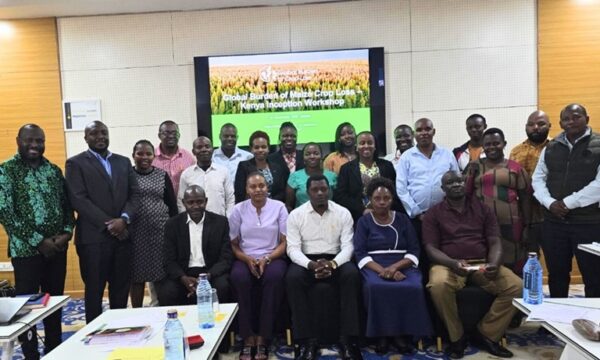
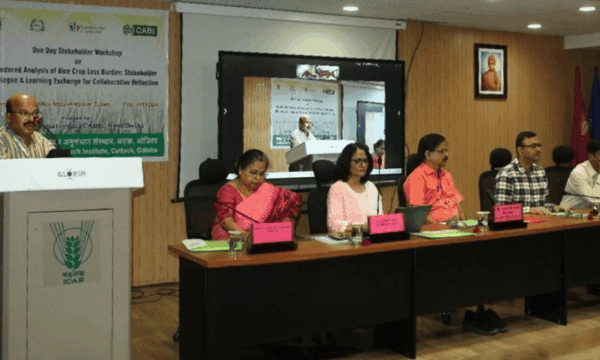
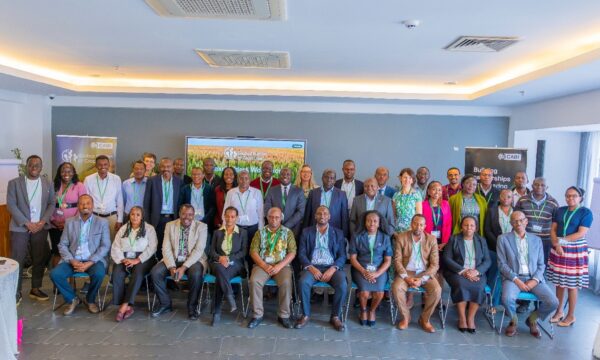
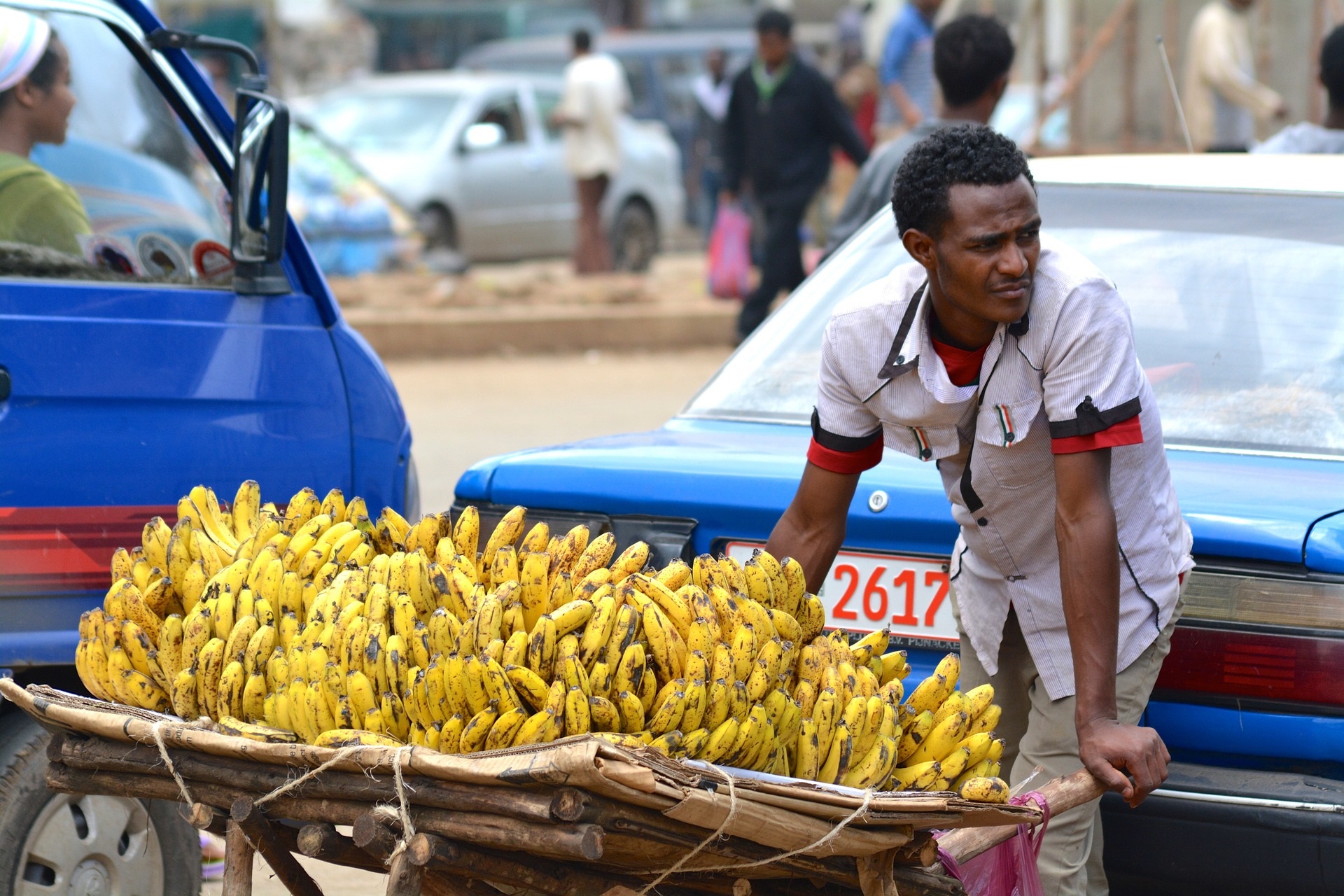
This is great work! It’s really encouraging to see efforts to track crop losses in Odisha and to pay attention to the different impacts on women and men farmers. Thanks for sharing!